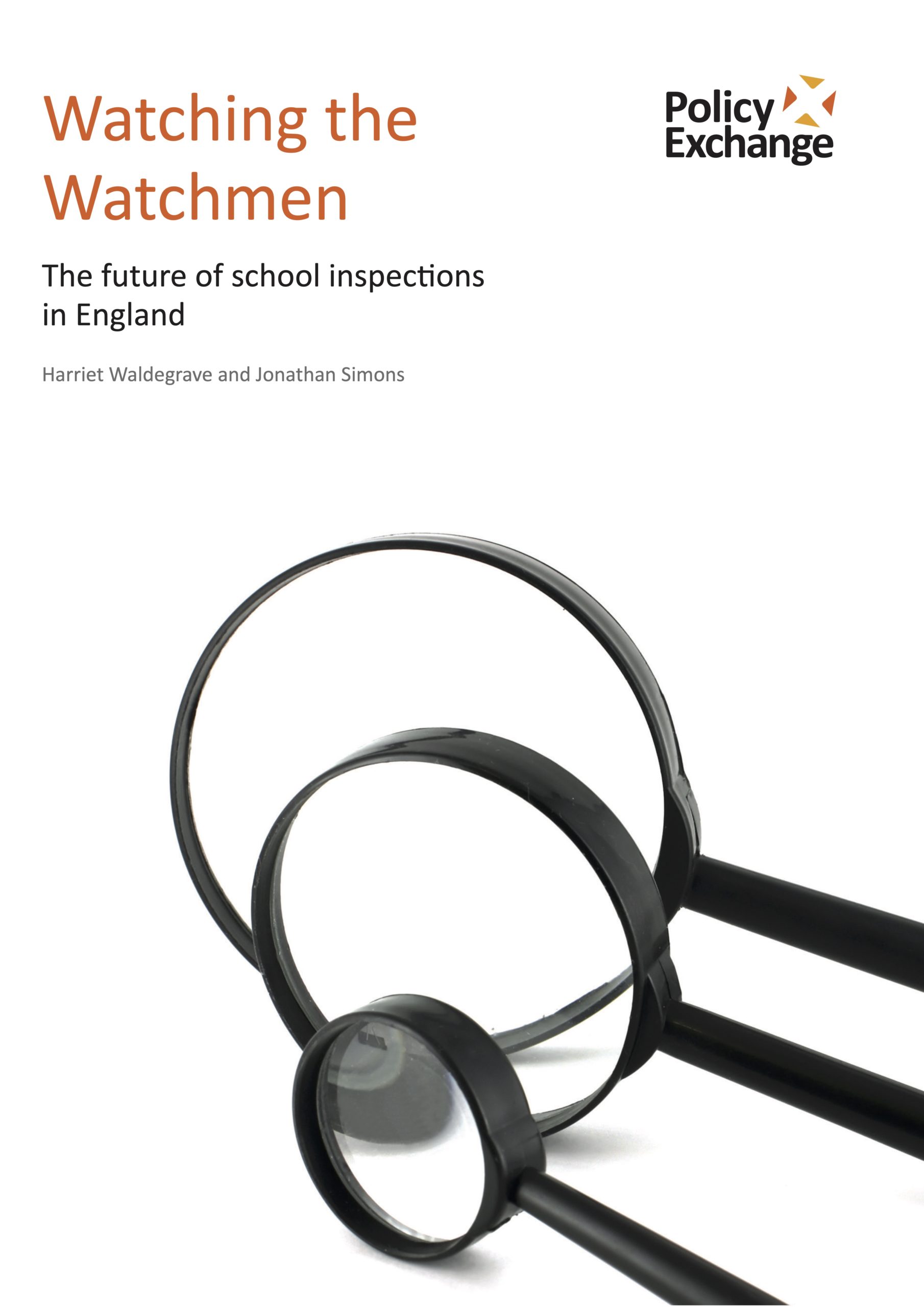
Watching the Watchmen: The future of school inspections in England
Unreliable lesson observations that normally last less than twenty minutes should be ditched in all routine school inspections as part of a radical set of reforms needed to improve the way schools are inspected in England.
Watching the Watchmen finds that observing lessons during an inspection, an activity which takes up a considerable amount of time and money, is neither valid nor reliable. Research suggests that there is a fifty-fifty chance that the lesson observation does not tally with the actual progress made by pupils in a class. While Ofsted has told its inspectors not to grade lesson observations, this clarification does not go far enough. In a self improving school system, Headteachers should be at the forefront of making judgements as to their school, with the inspectors’ role being to scrutinise rather than make judgements themselves without sufficient time and evidence.
The report also focuses on the quality of school inspectors. It says that Ofsted should give serious consideration to either abolishing or radically reducing the number of inspectors contracted to private outsourcing companies. Currently three regional contractors employ around 3,000 inspectors, 1,500 of whom carry out school inspections. Ofsted itself directly employs 300-400 inspectors, of whom 150 work in schools. Many inspectors lack the necessary skills, especially the ability to analyse data, or the experience or specialist knowledge in primary or special needs teaching to make a fair judgement of a fast evolving and increasingly autonomous education system. This leads to schools taking a lowest common denominator approach and making decisions on what Ofsted will understand, not necessarily what is in the best interests of the school. The report proposes that in future all Ofsted inspectors have relevant and recent teaching experience in the schools they are assessing. It also says that inspectors should have to pass an exam which tests their ability to analyse data and make reliable judgements in order to become accredited.
In order to deal with the fundamental change that is needed to reset the power relationship between schools and the inspectorate, the paper also recommends the introduction of a new two stage inspection process. This would enable Ofsted to focus more of its resources on struggling schools and free up better schools from the bureaucracy of a full inspection where this is not needed as much.
- The first stage would be a ‘Short Inspection’ for all schools (including Free Schools and Academies) which would happen once every two years. The school would be inspected on two criteria – an overall graded judgment of Outstanding to Inadequate and a new combined ‘school capability’ grade which would assess the school’s ability to continue to perform
- The second stage would be a ‘Tailored Inspection’ for all schools that fail to achieve a Good or Outstanding grade in both criteria, as well as schools where a Short Inspection cannot make a judgement. The resources saved by the two stage model would allow Tailored Inspections to have on average double time than a normal inspection does at present. This will allow inspectors the time to really understand the school and its data, and explore issues that the school may feel a brief inspection does not cover. A school would receive an overall grade which could also be from Outstanding to Inadequate.


